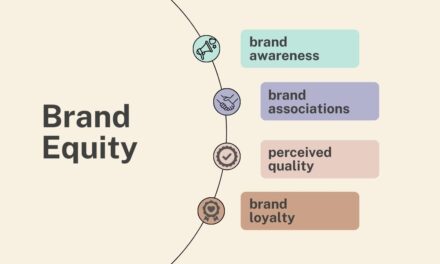Introduction
As a coach, your personal brand is your most valuable asset in today’s competitive market. It is what sets you apart from other coaches and helps you establish trust, credibility, and rapport with your target audience. This blog post aims to highlight the role of personal branding for coaches and how it can benefit your business. By the end of this post, you’ll understand the importance of personal branding, its components, strategies to develop a strong brand, and the significance of mindset coaching in achieving success.
1. Defining Personal Branding for Coaches
Personal branding is the process of creating a unique, consistent, and memorable identity that represents you as an individual, showcasing your skills, experience, values, and personality. It is distinct from corporate branding, which focuses on the identity of a company or organization.
For coaches, personal branding is crucial because it allows you to demonstrate your expertise, communicate your value proposition, and connect with potential clients on a deeper level. A well-crafted personal brand will help you stand out in the crowded coaching industry and establish yourself as a go-to expert in your niche.
2. Benefits of a Strong Personal Brand for Coaches
A strong personal brand can provide numerous benefits for coaches, including:
- Attracting ideal clients: Your personal brand helps you connect with clients who resonate with your values, methods, and approach. This ensures you work with clients who appreciate your unique coaching style, leading to more fruitful and satisfying professional relationships.
- Building credibility and trust: A consistent and authentic personal brand demonstrates your professionalism, expertise, and commitment to your coaching practice. This helps to build trust and credibility with potential clients, making it easier for them to choose you over your competitors.
- Increasing visibility and reach: A well-defined personal brand can boost your online presence and help you reach a broader audience. This increased visibility will attract more potential clients, partnership opportunities, and speaking engagements.
- Creating a lasting impression: A memorable personal brand will leave a lasting impression on your audience, helping you stand out from the competition and remain top of mind when clients seek coaching services.
- Enhancing professional value: A strong personal brand can elevate your perceived value in the marketplace. Clients are often willing to pay a premium for services from a coach with a reputable personal brand.
- Facilitating networking opportunities: A recognizable personal brand will attract like-minded professionals, opening doors to new networking and collaboration opportunities within your industry.
3. Components of a Successful Personal Brand
A successful personal brand consists of several key components:
- Unique selling proposition (USP): Your USP is what sets you apart from other coaches in your field. It’s crucial to identify and communicate your unique strengths, skills, and approach to coaching.
- Consistent visual identity: Your visual identity, including your logo, website design, and social media profiles, should be consistent and professional. This helps to create a cohesive brand experience for your audience.
- Compelling story and mission statement: Sharing your story and mission statement can help you forge emotional connections with your audience, making it easier for them to relate to you and trust your expertise.
- Authentic voice and style: Your personal brand should reflect your unique voice and style. Be genuine and authentic when communicating with your audience, as this will make your brand more memorable and relatable.
- Content strategy and platform presence: Develop a content strategy that showcases your expertise and provides value to your audience. Leverage multiple platforms such as social media, YouTube, blogging, and podcasting to reach a wider audience.
4. Strategies to Develop and Strengthen Personal Branding
To create a powerful personal brand, consider implementing the following strategies:
- Identify and define your niche: Determine your target market and the specific problems you help clients solve. By focusing on a niche, you can position yourself as an expert and make it easier for potential clients to find you.
- Develop a clear brand message: Craft a concise and compelling brand message that communicates your unique value proposition, coaching style, and expertise. This message should resonate with your target audience and help them understand why they should choose you as their coach.
- Establish a professional online presence: Invest time and resources into developing a professional website, complete with your branding elements, testimonials, and a portfolio of your work. Your website should effectively communicate your brand message and showcase your expertise.
- Leverage social media platforms, blogging, and podcasting: Create and share valuable content that educates, inspires, and engages your target audience. Consistently post on social media, write blog articles, and produce podcasts to establish yourself as a thought leader in your niche.
- Implement content marketing and SEO strategies: Optimize your content for search engines to improve your online visibility and attract organic traffic to your website. Create high-quality, informative, and keyword-rich content that positions you as an expert in your field.
- Engage with your target audience and build relationships: Interact with your audience on social media, respond to comments on your blog, and participate in online communities and forums. Building genuine connections with your audience will help you establish trust and loyalty.
- Attend industry events and network with other professionals: Participate in conferences, workshops, and seminars relevant to your niche. Networking with other professionals will help you stay informed about industry trends, learn from their experiences, and create potential collaboration opportunities.
5. Mindset Coaching and Personal Branding
Your mindset plays a crucial role in the success of your personal brand. As a coach, having a positive and growth-oriented mindset can help you overcome challenges, adapt to change, and continuously improve your brand.
Neuro-linguistic programming (NLP) can be a valuable tool in shaping a positive mindset. NLP techniques can help you understand and reframe your thought patterns, enabling you to develop empowering beliefs and habits that support your personal branding journey.
Here are some tips to maintain a growth mindset for continuous brand improvement:
- Embrace feedback: View feedback as an opportunity to grow and improve your brand. Be open to constructive criticism and use it to refine your branding strategy.
- Set clear goals: Establish specific, measurable, achievable, relevant, and time-bound (SMART) goals for your personal brand. Regularly review and adjust your goals to maintain focus and motivation.
- Cultivate resilience: Develop strategies to cope with setbacks and obstacles. Embrace challenges as opportunities to learn and grow.
- Stay curious: Continuously expand your knowledge and skills by reading, attending workshops, and learning from others in your industry.
- Surround yourself with supportive individuals: Build a network of like-minded professionals who support and inspire you. Engage in mentorship and collaboration opportunities to further your growth.
Conclusion
In today’s competitive coaching market, a strong personal brand is essential for success. By understanding the importance of personal branding, developing a unique and consistent brand identity, and implementing effective branding strategies, you can attract ideal clients, build credibility, and grow your coaching practice. Moreover, investing in mindset coaching and utilizing techniques like NLP can help you maintain a positive and growth-oriented mindset, which is crucial for achieving long-term success in your entrepreneurial journey.
Now is the perfect time to start building your personal brand. Take the first step by defining your niche, crafting your brand message, and establishing a professional online presence. Remember, the key to a successful personal brand lies in authenticity, consistency, and continuous improvement. If you need assistance in developing your personal brand or mindset coaching, feel free to reach out for guidance and support. Your journey to personal branding success starts now!











